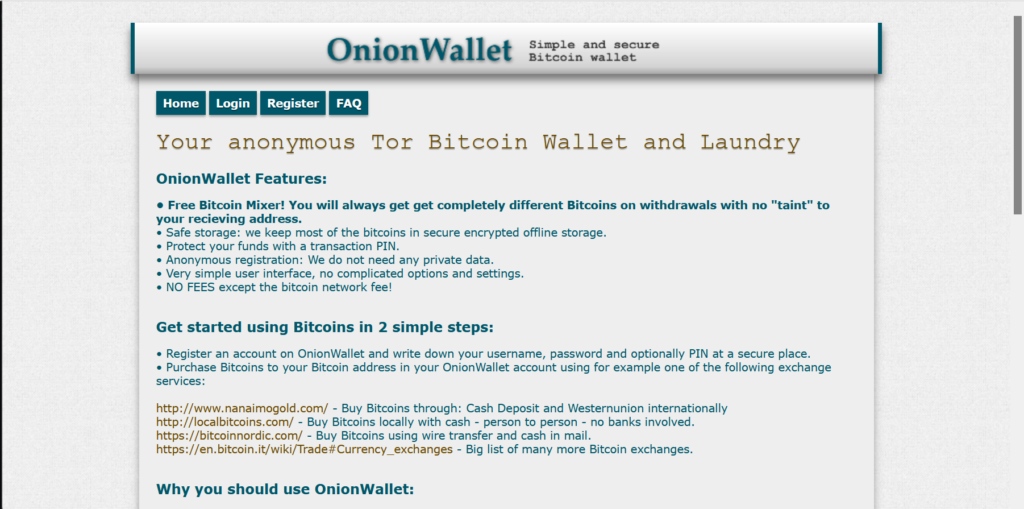Table of Contents
Toggleonion wallet – TOR Scam Report (1)
Onion Link: http://p2qzxkca42e3wccvqgby7jrcbzlf6g7pnkvybnau4szl5ykdydzmvbid.onion
Scam Report Date: 2024/05/16
Client Scam Report Breakdown
Original Report Summary:
The client describes a scenario where they attempted to use the OnionWallet service for a Bitcoin transaction. The user first deposited $45 worth of Bitcoin but soon realized that they needed $50 to complete their intended transaction on the external site they were visiting. To resolve this, they made a second deposit and paid a top-up fee of $50. However, after sending this payment, they encountered an issue. Instead of seeing a transaction hash or confirmation, they only saw the word “withdrawal” next to their payment in OnionWallet’s interface. No additional details like a transaction ID or hash were provided, which raised initial concerns.
At this point, the user attempted to reach out to the support team for assistance, hoping that the lack of transaction details was just a glitch. However, they received no response from OnionWallet. In hindsight, this was a critical red flag. The client was under pressure to make a purchase quickly and, thinking this was a temporary technical issue, they made another deposit of around $60 in an effort to proceed with the transaction. Unfortunately, they experienced the same problem with no response from the platform.
Escalating the Loss and Technical Difficulties
As the user continued their efforts, they realized the gravity of the situation. With $100 now tied up in what appeared to be a scam, they were left without the means to recover their funds. Notably, the user attempted to capture screenshots of their experience using the Tor browser, but those screenshots were rendered unusable, as they appeared black. This technical challenge further compounded the difficulty in providing evidence for their claims or seeking redress.
It’s important to note here that the use of the Tor browser, which is designed to preserve anonymity by routing internet traffic through multiple nodes, sometimes introduces issues when capturing screenshots. This could be due to how the Tor browser manages screen rendering to protect user privacy. The combination of these technical difficulties and the lack of response from OnionWallet’s support team left the client feeling cheated and with no clear recourse. The planned activities, which the client had intended to fund using Bitcoin, were ruined as a result.
Analysis and Defined Terminology
Several key elements in this report require further elaboration for clarity. First, a Bitcoin deposit refers to the act of sending Bitcoin to a designated address, often linked to a wallet or service, in exchange for a product, service, or conversion. In this case, the deposit was made to fund a transaction on an external platform using the OnionWallet service.
The term transaction hash refers to a unique identifier for each Bitcoin transaction, which is generated when the transaction is confirmed on the blockchain. The fact that the client did not receive this hash or a transaction ID is a major indication of the fraudulent nature of the platform. Without this identifier, the client had no way of verifying whether their transaction was processed on the Bitcoin network.
Additionally, the concept of Bitcoin mixing or Bitcoin laundry was heavily advertised on OnionWallet’s site. A Bitcoin mixer service aims to obscure the origin of Bitcoin by pooling funds from multiple sources and redistributing them to different addresses. While this process is meant to enhance privacy, it can also be used by scammers to obscure the movement of stolen funds. OnionWallet claimed to offer a free Bitcoin mixer, yet its failure to deliver even basic transaction details suggests that this feature was a ruse to lure users into depositing funds that could be easily misappropriated.
Lastly, the Tor browser is a tool designed to offer anonymity by routing internet traffic through multiple servers, masking a user’s IP address. While this is a valuable tool for privacy-conscious individuals, it can also be used by fraudulent platforms to evade detection and avoid accountability. The client’s issue with black screenshots is a known limitation when using Tor, which aims to prevent the capture of sensitive data but inadvertently caused frustration in this case.
Conclusion
The client’s experience with OnionWallet clearly illustrates a typical scam pattern, where an enticing service (free Bitcoin mixing and anonymous transactions) is offered to lure users into depositing funds, only for those funds to disappear without trace. Despite making multiple deposits and attempting to communicate with support, the user was ultimately left with a significant financial loss and no means of recovery. This case serves as a cautionary tale for users of anonymous services, especially those operating through Tor hidden services, as these platforms can sometimes be set up to exploit their users’ trust in anonymity.






